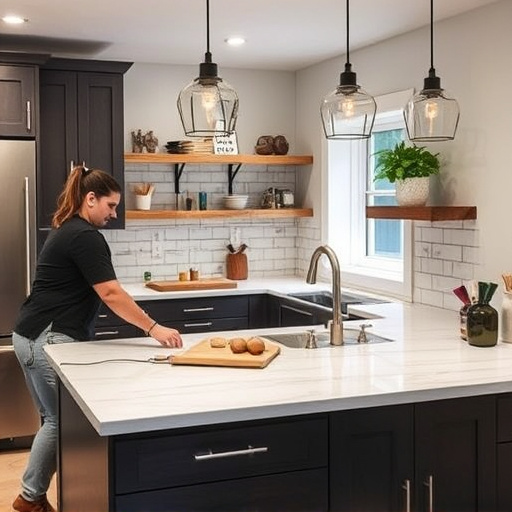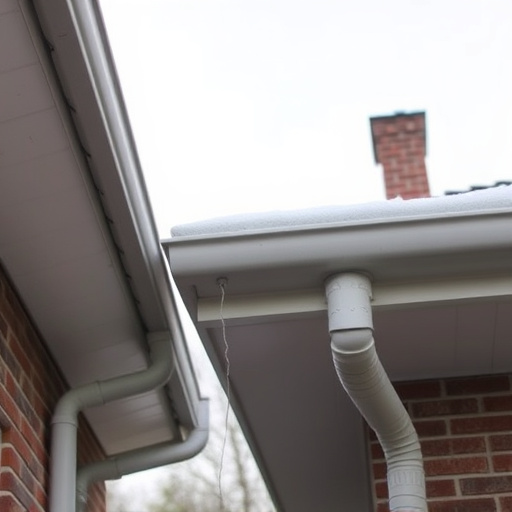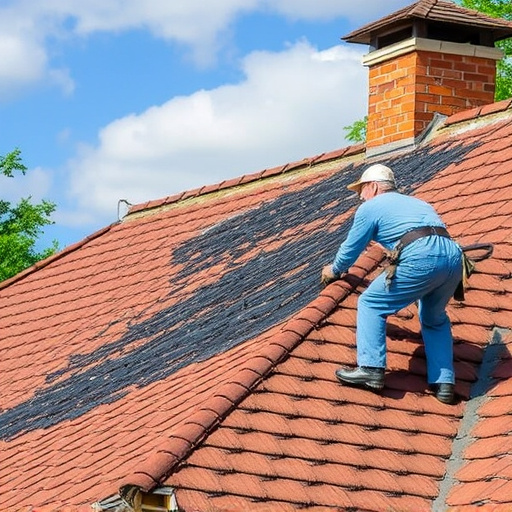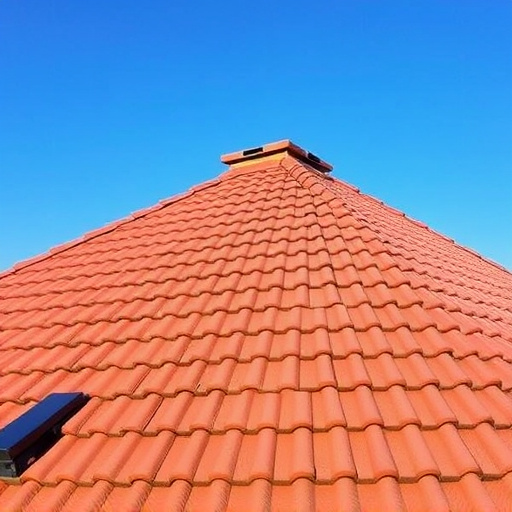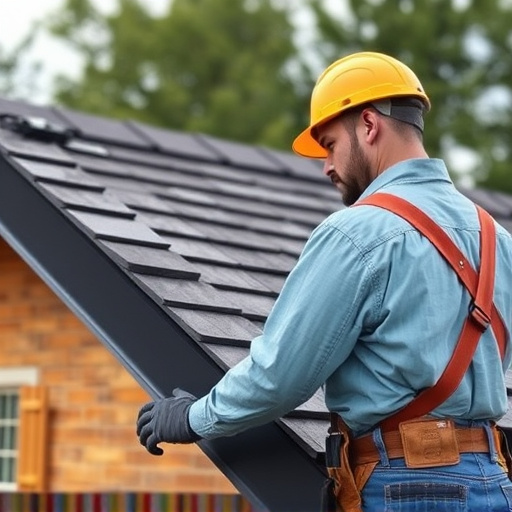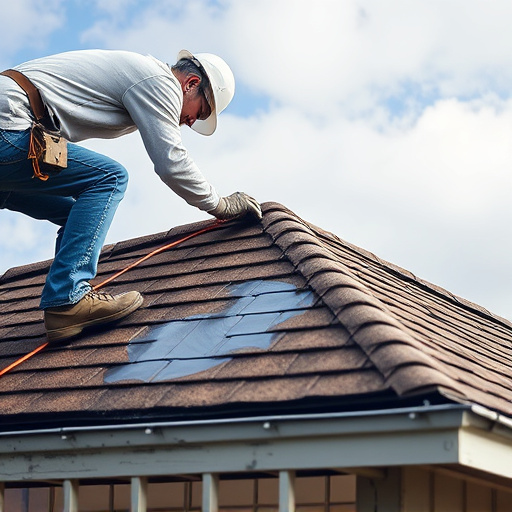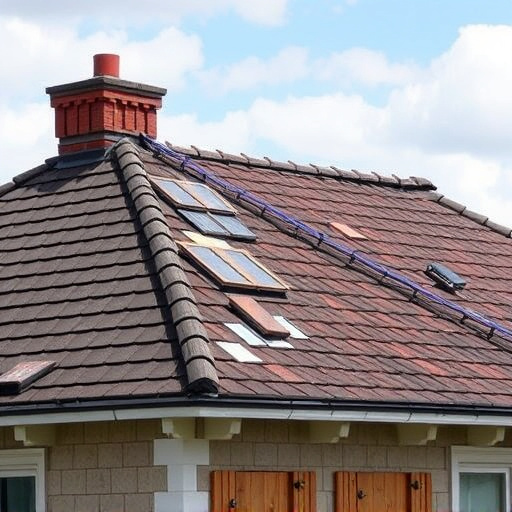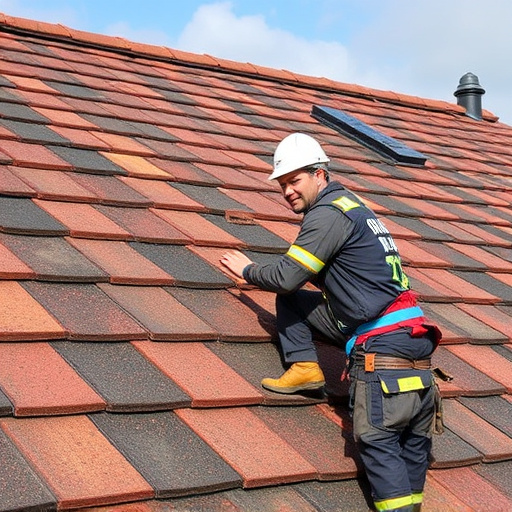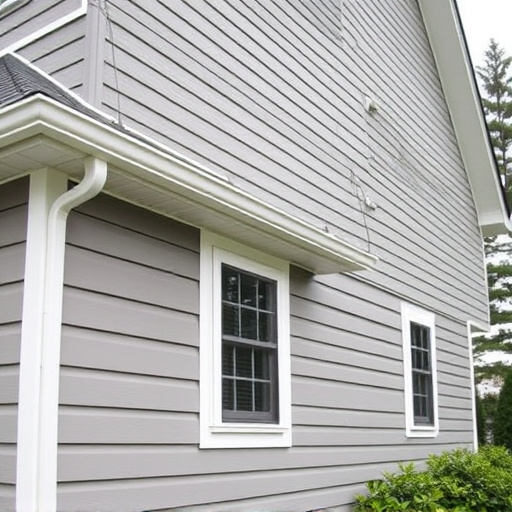Roof replacement costs vary widely based on material type (asphalt shingles $50-$100/sq ft, metal $75-$250/sq ft, tile $150-$400+), roof size/complexity, existing condition, labor rates, and regional influences. Getting multiple quotes from reputable home exterior services ensures fair, tailored pricing for specific needs, including siding replacement if required.
Roof replacement is a significant investment, with costs varying widely based on several factors. Understanding these variables is crucial for homeowners planning this project. This article delves into the intricacies of roof replacement expenses, offering insights into what drives prices and how to budget effectively. From material choices to labor rates and local regulations, we explore the key determinants, providing a comprehensive guide to help you navigate the process and avoid hidden costs.
- Understanding Roof Replacement Costs
- – Factors influencing roof replacement expenses
- – Average cost ranges for different roofing materials
Understanding Roof Replacement Costs
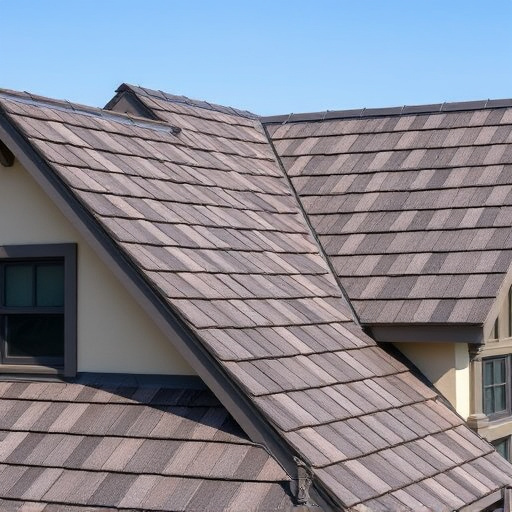
Understanding Roof Replacement Costs
Roof replacement costs can vary greatly, depending on several factors. The primary determinant is the type of roof material used—asphalt shingles are typically the most affordable option, while metal or tile roofs can be significantly more expensive. Moreover, the size and complexity of your home’s roof play a crucial role; larger or irregularly shaped roofs will usually command higher prices due to the increased labor and material requirements.
Other factors influencing roof replacement costs include the condition of the existing roof, local labor rates, and any additional services like commercial siding or commercial roofing repairs that may be needed alongside the main replacement. It’s important for homeowners to get multiple quotes from reputable home exterior services providers to ensure they’re getting a fair price tailored to their specific needs.
– Factors influencing roof replacement expenses
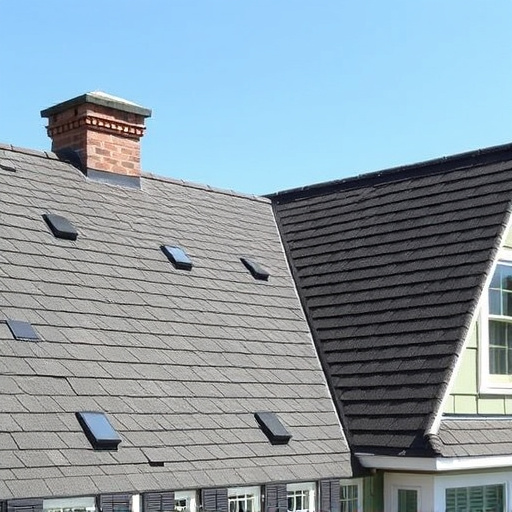
The cost of a roof replacement is influenced by several key factors. First and foremost, the size and complexity of your roof play a significant role in determining the overall price tag. Larger roofs or those with unique architectural features will generally require more materials and labor, driving up costs. The type of roofing material you choose is another critical consideration. Traditional options like asphalt shingles are cost-effective and readily available, while high-end materials such as metal or slate tiles can significantly increase expenses. Additionally, factors related to your location come into play; regional building codes, climate conditions, and access to specific materials can all contribute to varying roof replacement costs.
The scope of work involved in the replacement process is equally important. Simply replacing the roof covering may be sufficient for minor repairs, but more extensive projects might necessitate the removal and disposal of old roofing materials, as well as the installation of underlayment, flashing, and other components. Moreover, if your existing roof structure requires repair or replacement alongside the new covering, this will further add to the overall cost. Therefore, comprehensive inspections and accurate assessments by professional roofing services are essential to understanding the true scope and associated costs of a roof replacement project, ensuring you’re well-prepared for the investment in siding services or roofing installations.
– Average cost ranges for different roofing materials
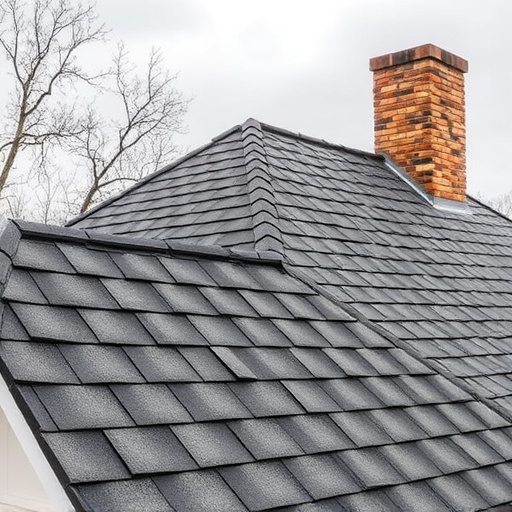
Roofing materials play a significant role in determining the cost of a roof replacement. On average, asphalt shingles are the most common and budget-friendly option, ranging from $50 to $100 per square foot installed. This makes them an attractive choice for many homeowners looking for a cost-effective solution. Metal roofing, on the other hand, offers durability and long-term savings but comes at a higher upfront cost, typically between $75 and $250 per square foot.
For those seeking a more unique and aesthetically pleasing option, ceramic or tile roofs can add a touch of elegance to any home. However, these materials are pricier, with costs varying from $150 to $400 or more per square foot. Additionally, factors such as the size and complexity of the roof, labor costs, and regional differences in material availability can also affect the overall price of a roof replacement project, including siding replacement if necessary.
When considering a roof replacement, it’s clear that various factors and material choices significantly impact the overall cost. Understanding these variables empowers homeowners to make informed decisions. By weighing the average price ranges for different roofing materials, you can effectively budget for this essential home improvement. Remember, each roof is unique, so consulting with professionals is key to obtaining an accurate estimate tailored to your specific needs and location.


